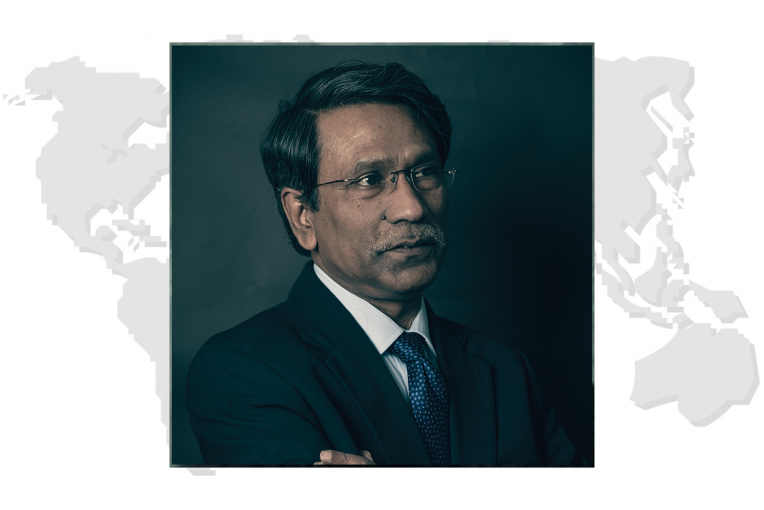As Bangladesh plunged into a violent political crisis on Thursday, July 18, Distinguished Professor Dr. Ali Riaz was frequently interviewed by and quoted in international media to explain the background and possible trajectories.
A student movement, which began July 1 demanding reforming the quota system in the public service, transformed into a popular movement against the Sheikh Hasina government after police and ruling party henchmen attacked students and killed several people on Tuesday, July 16. As the students called for a general strike, people from all walks of life joined the movement while the law enforcement agencies dealt with the demonstrations heavy-handedly. An indefinite curfew and a total internet shutdown were imposed on Friday, July 19, and the Army was deployed in major cities. Violence spread as police continued indiscriminate firing and protestors burned properties. In the subsequent days, the death toll rose to an unprecedented level; as of July 23, the death total crossed 180, while the country remained under curfew. This is the worst violence Bangladesh has experienced since its independence.
On July 18, Riaz was interviewed by the BBC World Service Business News, and Benar News. On July 19, he participated in a Bengali talk show of the Deutsche Welle, was interviewed by BBC News Hour, Benar News, quoted by Voice of America and the news agency AFP. On July 20, he offered his point of view in the FirstPost news portal. The following day, he was interviewed by BBC News Hour, Aljazeera English, was quoted in the Belgian newspaper Le Soir and in an Italian newspaper. On July 22, he was quoted in a report of the AFP, and in Deutsche Welle, and interviewed by Malaysian Radio station BFM 89.9 on its Morning Run program. He was also quoted in a report broadcast by German public radio ARD on July 22.
In discussing the development, Riaz highlighted that the quota reform movement of the students was a spark which ignited a nationwide fire because of the simmering discontent due to economic hardship, widespread corruption, and political disenfranchisement. In past years, Bangladesh has experienced dwindling foreign reserve and inflation while people connected to the regime enjoy an extravagant life and engage in unbridled corruption. Sheikh Hasina, who secured a fourth-consecutive term in the January election, which has been described by the U.S. State Department as ‘not free and fair.’ In the past decade the government has increasingly become ‘a personalistic autocracy’, Riaz mentioned in several interviews.
The ongoing upheaval is the most serious challenge the Hasina government faced since she came to power in 2009. Riaz also published a commentary titled “Bangladesh student protests are more than about reducing public service job quotas” on July 17, ahead of the eruption of violence, suggesting that the quota reform movement may become a mass upsurge.

